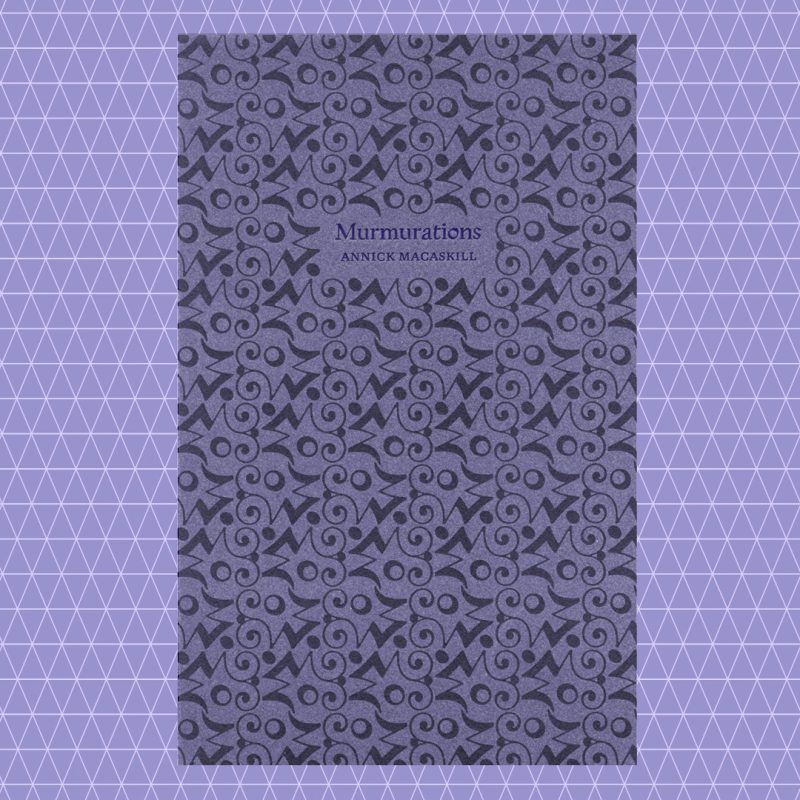USEREVIEW 033: Geographies of Continuum: Lyric and Love
Attentive as a bird-watcher, reviewer Sneha Subramanian Kanta studies the wingbeats of Annick MacAskill’s sophomore poetry collection, Murmurations (Gaspereau Press, 2020). From landscape to lineation, this traditional review observes and appreciates the full scope of forces that give life to the text.
ISBN: 978-1-554472086 | 96 pp | $21.95 CAD
#CAROUSELreviews
#USEREVIEWEDNESDAY
Murmurations by Annick MacAskill is a meditation upon the topographies of love, where every essence is magnified by the presence of nature. In tenderness, there is strength and ferocity. When in love, our consciousness is adrift towards an expanse larger than ourselves. In Murmurations, we travel through the pulsating Atlantic, the checkerboard fields of Saskatchewan, winter in Ontario and mountainous terrains. In reading nature poetry, one experiences a constancy of how inextricable our surroundings are from the journey of an individual. MacAskill juxtaposes landscape with the physical separation and uniting of lovers. These poems appear on the page with brevity in lineation, such as in the lines:
My glasses fog with your breath, our mouths
made visible by the strings of Christmas lights
you hung from the adolescent birch trees —
Memory is constructed through the symbols and motifs that present themselves in the natural world.
I’m aware of how rooted love may be in the everyday, and this collection celebrates such moments throughout. Be it “the orange mug pressed to my palm where later / your skin will be …” or “By the lake, you take a picture of us,” allusions to a permanence beyond the lovers is writ large. When the poems are innately aware of geography, they continue to sing not only from the mouth of the poet but through landscape itself. These steady, sonorous semblances reach out through every interaction of the lovers, in widening scopes across the paths through which they pass. A love song then reaches a midpoint of continuum for the future with the lines, “I’ve waited long enough to make certain demands — / collapse the sky and run your body through my veins …” The subtlety here works as a foregrounding technique for what is to arrive, with a candid “If the world will not miss us, we will not miss it either —”, or the metaphor that extends to include the self as “an exposed animal curling itself / underneath hotel sheets.”
As a reader, I’m most astounded by interiority in a poem, and how that may move through varied contexts. The collection, wholly, moves like a bird flaps its wings: inwards, and then, rapidly, towards the world. Even the everyday is described as carrying a story, such as in the lines:
I double-take
when you carry out the compost, cornsilk
spilling from under the steel lid, an anecdote
about your father’s hatchback Tercel
slipping from your soft upper lip.
The amalgamation of tense and time here offer a dual function, of how remembrance and daily elements are connected.
The velocity in these poems is tangible. When I first read the lines “You yelled out from the water, pointing — / like any other gull, ordinary, its calls / swallowed by the distance, remarkable / only for its size,” I was struck by how “yelled” is an action that transcends from a space in water. Water is a vital point for myriad references in this collection. Consider these lines from different poems: “while birds we can’t name / float cupped in the lake’s surface”; and “… I will remind you / of where we were months ago, and the rivers / that have run through us since —”; and “in that point after rain when it still sounds / like raining,” among such instances. It is this flexible and buoyant quality of water which is akin to the journeys lovers take with each other. Consider the line: “All day / I am thirsty, I drink and I drink, fill / the plastic bottle, blue like antique glass, / at the kitchen sink.” There is a sense of absence at this precise moment, highlighted by the need to fill the empty bottle.
MacAskill’s voice holds a vivid, rhythmic cadence, especially in the context of outdoor and nature poetry produced in Canada, and there needs to be special emphasis on what reading such a collection does in the current situation of an ongoing pandemic. The world in this collection contains a materiality all its own. This is because of a singular voice that drives the narrative across a multitude of landscapes. Even in the references to unfamiliar spaces, I could visualize the landscape due to intricate details. For instance, in the poem ‘Yarmouth County,’ the beginning lines, “A simple house, its windows elevated over Chebogue Point, / the blond panels rendered still paler in whitewash,” set the tone for the construction of this space where the action takes place. Similarly, the poem ‘Banff’ begins: “Clouds trip over mountains, lend / shadows to our hands, ungloved — / four small blessings for November, / yours larger than mine …”
There are several possibilities that this collection brings forth, continually, with the lovers. The landscape connects to the narrative, and we wade primarily through wintry lands, thinking “We should be so lucky — yellow flowers / sparkle in the grass along the highway; / weeds, more perfect / than the armful of grocery-store tulips / I brought to you in February.” Pages before this poem, the reader is told, “We’ve been waiting for the birch to bloom.” These poems echo in their oneness about the interactions between lovers, of what holds them together, and of being rooted in the natural world.
I also bring to attention how books are material objects, and mention that, apart from being a collection I will return to, Murmurations is most uniquely designed. Gaspereau Press has produced a fine book, with special mention to the impeccable typesetting. Murmurations is a book for our present moment, as it carries within a sense of immediacy, concentrating on the landscapes of Canada and showing us interactive visions of love. This is a collection of abundances, in thought, form and content. The sounds in this murmuration carry, even through the flip of page after page.


Sneha Subramanian Kanta is a writer from the Greater Toronto Area, Canada. She is the recipient of the inaugural Vijay Nambisan Fellowship 2019. Her chapbook Ghost Tracks is available to order from Louisiana Literature Press. She is the founding editor of Parentheses Journal. More: snehasubramaniankanta.com
